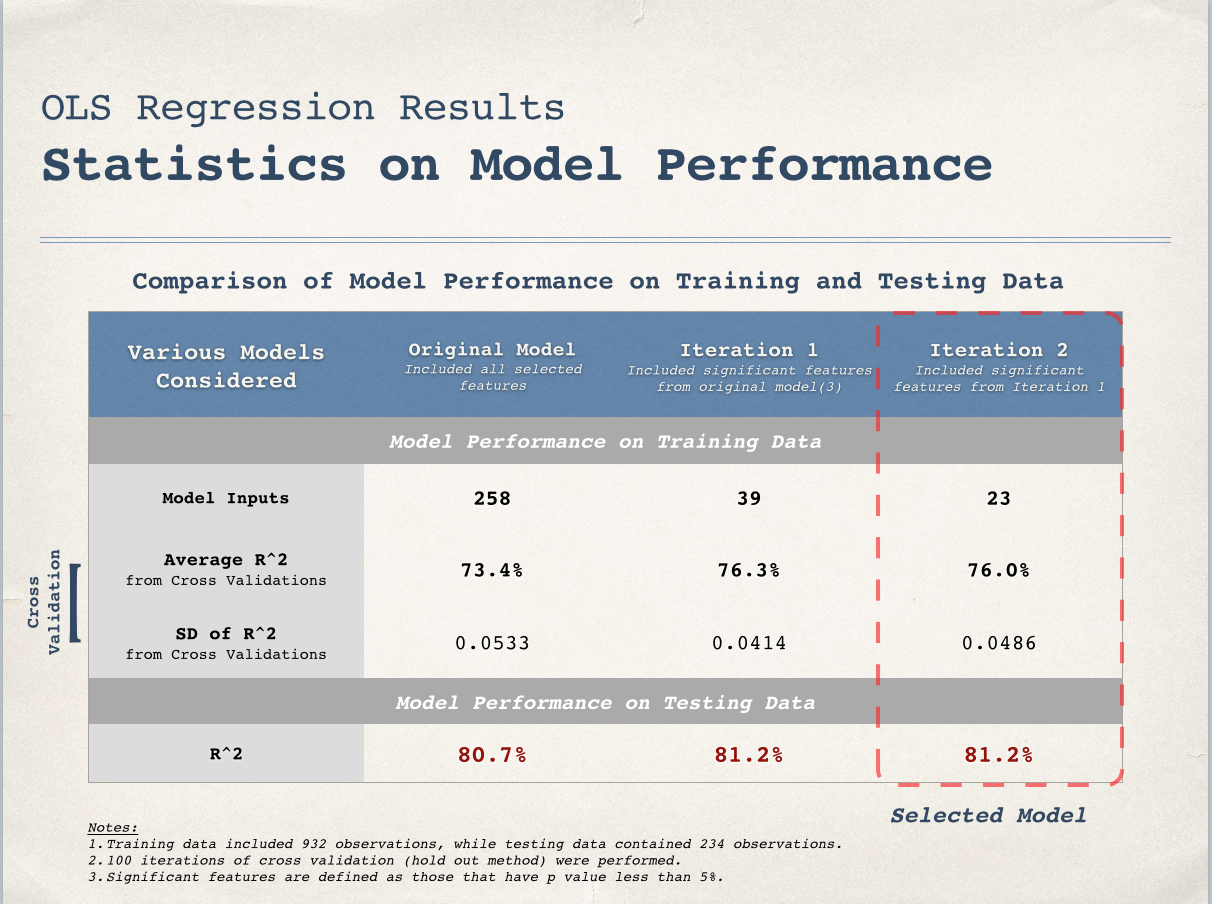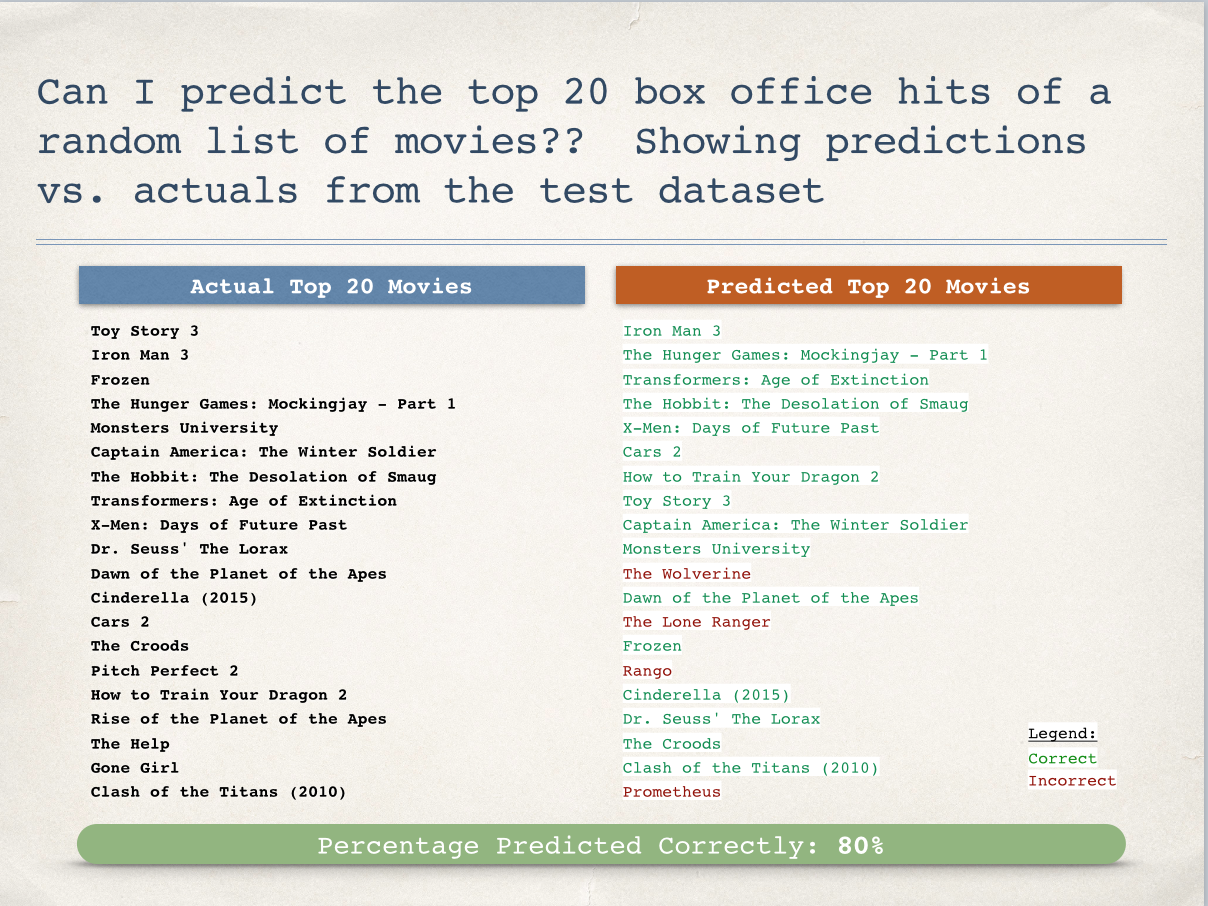Predicting Movie Box Office Success
Can you predict this year's biggest box office hits in the theaters?
My husband claims that he can by his gut feelings. Simply on whether it's a superhero movie or a Disney animated film. Especially because he thinks Disney is trying to take over the world.

I make NO such bold claims. Instead I tinker with data and try to build a predictive model -
Background
In this analysis I scrapped 5 years of movie data (2010 - 2015) from boxofficemojo and imdb. For predictive algorithm I used linear regression here.
Some researchers have accurately predicted movie box office success from analyzing consumer activity prior to a movie's release, such as wikipedia edits, Facebook/Twitter, or Google Searches. One drawback to using this approach is that you might be limited by having to collect data right before the movie release. I might look into this for a future analysis - for now I focused mostly on "inherent" movie characteristics, such as movie genre, production company, movie screens, etc.
Feature Selection and Transformation
The features I considered included:
1. Brand (Disney, DreamWorks, Marvel Comics, etc)
2. Distribution Company (Fox, Buena Vista, etc)
3. Series or Franchise (LOTR, X-Men, Hunger Games, etc.)
4. Genre (Action, Drama, Comedy, etc)
5. "Star" Actor/Actress (total Oscar-Nominated casts members)
6. "Star" Director (Oscar-Nominated director)
7. Maximum Screens
8. Release Date
I experimented and settled on these feature transformations which improved my model performance:
- I combined Brand & Genre (e.g. Action - Marvel Comics, Animation-Pixar).
- I included higher power terms for Screens. Maximum screens have a non-linear relationship with total box office (since movies are screened over several weeks, with each subsequent week having fewer screens or theaters showing the movie).
- I made dummy variables for the month of movie release . A couple of months (including June, November, December) showed significant relationship with box office success.
- I created a "star factor" variable which combines the effect from Oscar Stars with Oscar Directors and Series/Sequels. This factor awards movies with both Oscar Stars and Oscar Director more points, and even more if it is part of a Series/Franchise. The equation was: [Oscar Star(s) + Oscar Directors + Series + Oscar Star(s)* Series + Oscar Director * Series + Oscar Star(s) * Oscar Director]
Model Performance
After multiple iterations I achieved these results on 3 alternative models:

At each iteration I reduced the number of model parameters by taking out variables that are not significant, and it improves the model performance both on the training set and test set - good takeaway! Having a few significant strong predictors is better than having a ton of less significant predictors.
My final result: 81% R Squared! Not too bad for now.
What exactly does it all mean? Or how can I even use this?
Well for one I can show off to friends. (You might be asking - who are these "friends"? Are you sure that they are still your "friends"? )
I also looked into - if I were to use my model to pick the top 20 box office hits, how would it do against actual results. I used my test data to check this out and these are the results:

I got 16 out of 20 correct! Dammit Jonny Depp for making your flops.
